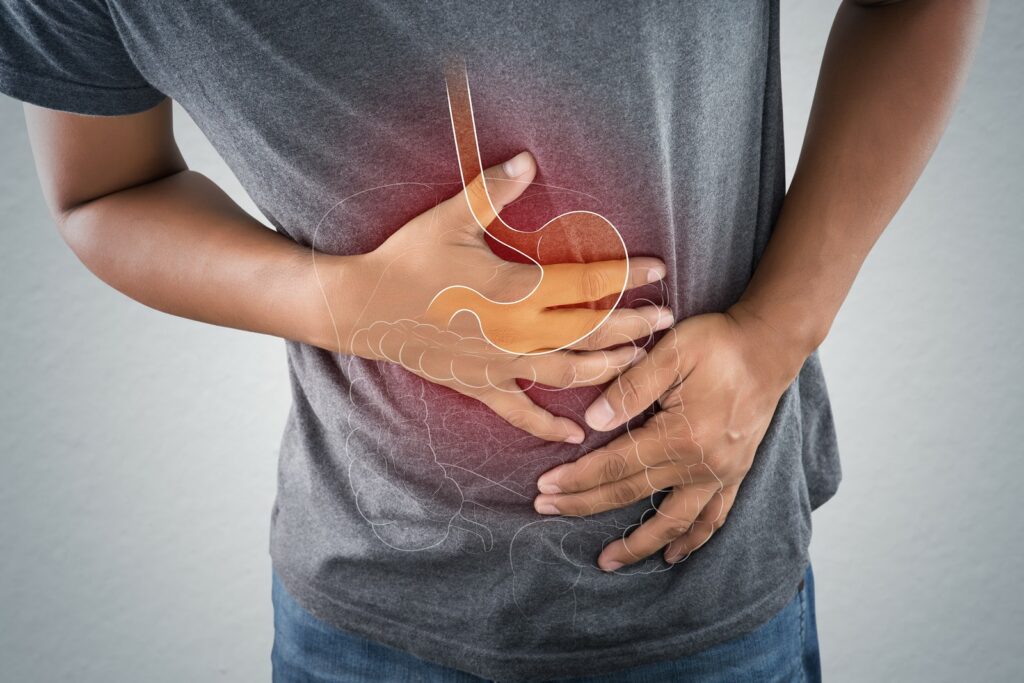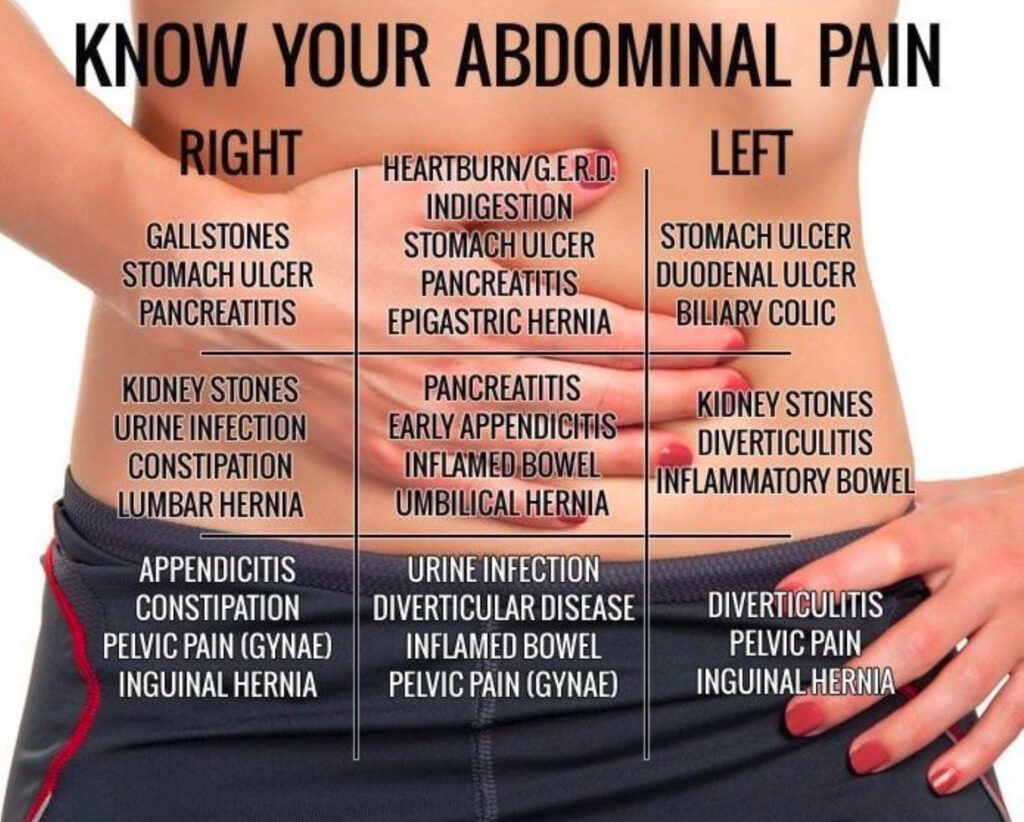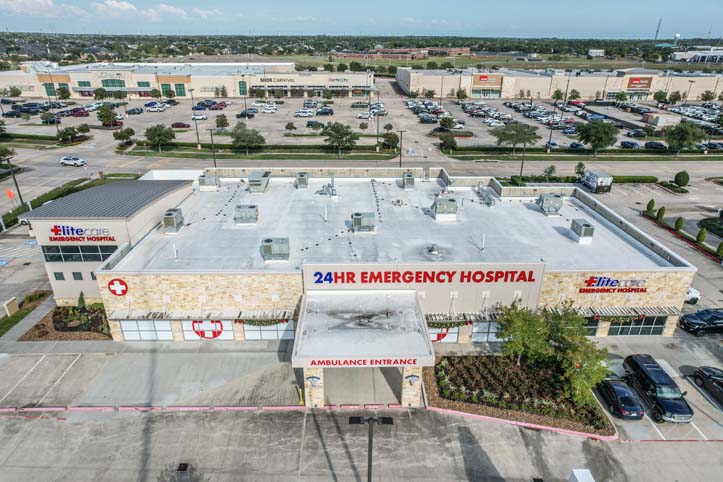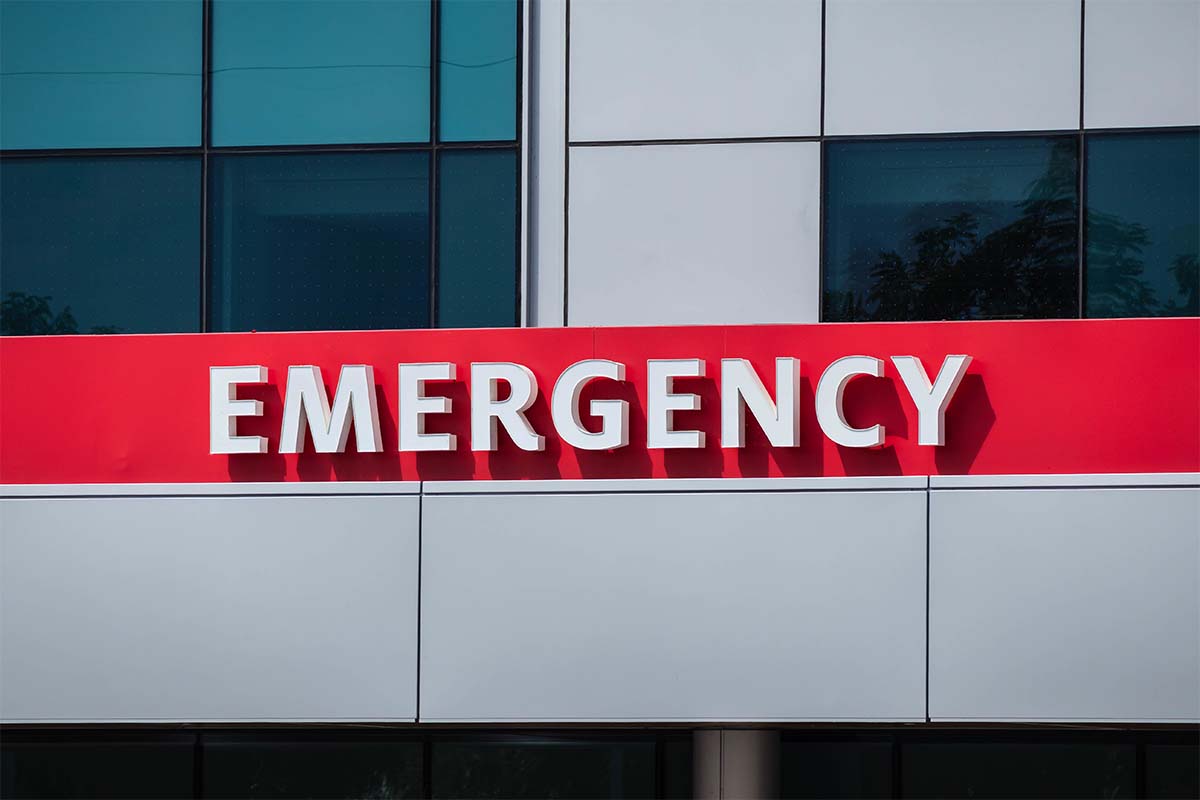
Warning Signs & Symptoms
It can be easy to blame your abdominal pain on indigestion or stress. But sometimes the pain is more serious, and you’ll need to see a doctor to diagnose appendicitis or any other more serious abdominal conditions. Learn which symptoms to watch out for and when you should get medical help.
Did you know that stomach pain is the most common reason for emergency room visits? When a person is unsure about what to do, it may be best to call a doctor to decide if an ER visit is necessary.
What Causes Stomach Pain?
Common Causes – Harmless abdominal pain usually subsides or goes away within two hours. (WebMD – March 2019)
- Gas: Formed in the stomach and intestines as your body breaks down food, this can cause general stomach pain and cramps. This often can be indicated by belching or flatulence.
- Bloating: Related to gas, this occurs when excessive gas builds up in your digestive tract. Your stomach will usually feel full, and you may experience cramps.
- Constipation: This occurs when you are having difficulty making bowel movements. If you are having two or fewer bowel movements a week, constipation is the likely cause. In addition to feeling bloated and nauseous, you may experience cramping and pain in your rectum.
- Indigestion: You typically experience this as an upset stomach, burning, or belly pain after eating.
- Stomach flu: Your stomach may hurt before each episode of vomiting or diarrhea.
Severe Pain Causes – In serious cases, the stomach pain gets worse. This may be an indication of a more severe condition, such as:
- Appendicitis: This happens when the appendix, which is part of the large intestine, becomes infected and inflamed. If the appendix ruptures, it can become life-threatening. Surgery to remove the appendix, an appendectomy, is the usual treatment.
- Stomach (peptic) ulcers: crater-like sores in the lining of the stomach and small intestine. These can bleed or burst and be life-threatening if not treated. Medication to reduce your stomach acid can help treat them.
- Gallstones: Hardstones, made up of cholesterol and other materials, that form in the gallbladder, which is just below the liver. They can cause inflammation of the gallbladder, which can lead to inflammation – known as acute cholecystitis. Treatment for these problems includes the removal of the gallbladder.
- Kidney stones: Crystals of varying sizes that form in your urine and build up in your kidneys. The pain can be severe. You can pass some on your own through urination, or doctors may remove them surgically.
- Inflammatory bowel disease (IBD): A chronic inflammation in the digestive tract that can cause severe abdominal pain, vomiting, diarrhea, weight loss, and rectal bleeding. Examples of IBD include Crohn’s disease and ulcerative colitis.
- Pancreatitis: The pancreas produces insulin and glucagon – the two hormones that manage how your body processes sugar – and aids in digestion. Inflammation of the pancreas, which can affect its performance and cause severe stomach pain.
- Hernia: Tissue from inside the abdomen that bulges out through a weak point in the abdominal wall. There are several different types depending on where the bulge appears.
(Medicine Net, 2019)
Identify the Pain Location in the Abdomen
Many times the location of the pain in your stomach can determine the potential cause: (Check the Diagram below for more information)
- Upper right: Gallstones, cholecystitis, stomach ulcer, duodenal ulcer, hepatitis
- Upper center: Heartburn/indigestion, hiatal hernia, epigastric hernia, stomach ulcer, duodenal ulcer, hepatitis
- Upper left: Functional dyspepsia, stomach ulcer, gastritis, pancreatitis
- Middle right: Kidney stones, kidney infection, inflammatory bowel disease, constipation
- Middle center: Umbilical hernia, appendicitis, stomach ulcer, inflammatory bowel disease, pancreatitis
- Middle left: Kidney stones, kidney infection, inflammatory bowel disease, constipation
- Lower right: Appendicitis, inflammatory bowel disease, constipation, pelvic pain
- Lower center: Bladder infection, prostatitis, inflammatory bowel disease, inguinal hernia, pelvic pain
- Lower left: Constipation, diverticulitis, irritable bowel syndrome, inflammatory bowel disease, pelvic pain, inguinal hernia

When Should You Contact Your Doctor?
If your abdominal pain is severe, doesn’t go away, or keeps coming back, talk to your doctor. Ideally, mild abdominal pain normally goes away without treatment. However, in some cases, abdominal pain may need an urgent visit to the ER. Call 911 if your abdominal pain is severe and associated with trauma (from an accident or injury) or pressure or pain in your chest, or experiencing any of the following:
- Bloody stools
- High fever (greater than 101°F)
- Vomiting up blood (called hematemesis)
- Persistent nausea or vomiting
- Yellowing of the skin or eyes
- Swelling or severe tenderness of the abdomen
- Difficulty breathing
- In case you’re pregnant or breastfeeding and you experience abdominal pain, we highly recommend visiting the ER without delay.
(Healthline, 2019)
At last, we can summarize that stomach pain can feel very uncomfortable, and can often signal a minor illness. However, it is not possible to diagnose stomach pain based on symptoms alone. The severity of a person’s stomach pain does not necessarily correlate with the severity of the illness. For example, some gas pain can be severe but will pass without causing any lasting harm. (Medical News Today, 2019)
It is best to have a visit to the ER on the side of caution and see a doctor for any stomach pain that does not go away, or if the cause is unclear.
Work Cited
Marks, Jay W., and Charles Patrick Davis. “Abdominal Pain: Reasons for Stomach Aches, Cramps & Discomfort.” MedicineNet, MedicineNet, 12 July 2019, www.medicinenet.com/abdominal_pain_causes_remedies_treatment/article.html
Kahn, April. “Abdominal Pain: Causes, Types, and Prevention.” Healthline, Healthline Media, 8 May 2020, www.healthline.com/health/abdominal-pain
Khatri, Minesh. “Why Does My Stomach Hurt? 17 Possible Causes of Stomach Pain.” WebMD, WebMD, 30 May 2019, www.webmd.com/pain-management/guide/abdominal-pain-causes-treatments
“Severe Stomach Pain: When to Go to the Doctor.” Medical News Today, MediLexicon International, www.medicalnewstoday.com/articles/325162
















